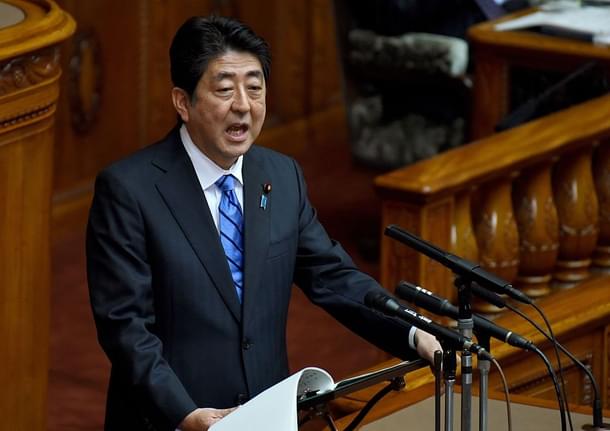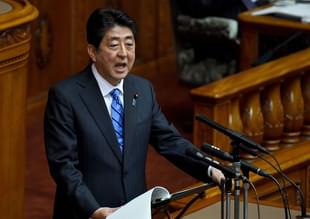World
Shinzo Abe, Japan's Longest-Serving Post-War PM, Dies After Being Shot At Campaign Event
Swarajya Staff
Jul 08, 2022, 12:26 PM | Updated 03:21 PM IST
Save & read from anywhere!
Bookmark stories for easy access on any device or the Swarajya app.


Japan's former prime minister Shinzo Abe, who was fighting for life in a hospital after being shot at a campaign event on Friday (8 July), has died, Japan's public broadcaster NHK has reported.
A man in his 40s, who has served in Japan's Self Defence Force, has been arrested for the murder, and the security services have also recovered the weapon used for the assassination.
Abe was shot while delivering a stump speech on behalf of Kei Sato, a current member of Japan's Upper House running for re-election in Nara. He was shot at around 11.30 am Japanese time, NHK added.
Japan's longest-serving post-war PM
Abe took the prime minister's office for the first time in 2006 and became Japan's youngest prime minister since the Second World War. In his first stint, he served as prime minister between 2006 to 2007. He returned as prime minister in 2012 and served till 2020, becoming Japan's longest-serving prime minister since World War II.
In late 2020, Abe resigned as prime minister, citing poor health. He was being treated for ulcerative colitis, a chronic intestinal disease. During his term in office, he pursued a conservative agenda of restoring the country's economy, military, and national pride.
A grandson of Nobusuke Kishi, who served as prime minister of Japan from 1957 to 1960, Abe was initially elected to Parliament in 1993 after the death of his father, a former foreign minister.
Abe returned to office in 2020 with the promise of fixing Japan's beleaguered economy and achieving the nationalist dream of amending Japan's pacifist constitution to allow for a full-fledged military to deal with the growing threat from the Chinese Communist Party. Abe sought to revitalize Japan's economy with his 'Abenomics' policies.
Abe pioneered the concept of Indo-Pacific in a famous speech to the Indian Parliament in 2007, where he spoke about the 'Confluence of two Oceans'.
Even after resigning as prime minister, Abe remained one of the country's most popular leaders and retained his influence in the party.
He had hoped that an overwhelming victory by the LDP in the Upper House elections would enable him to make progress on one of his most dearly held political aspirations — revising Japan's pacifist Constitution to allow the country to have a standing military.




